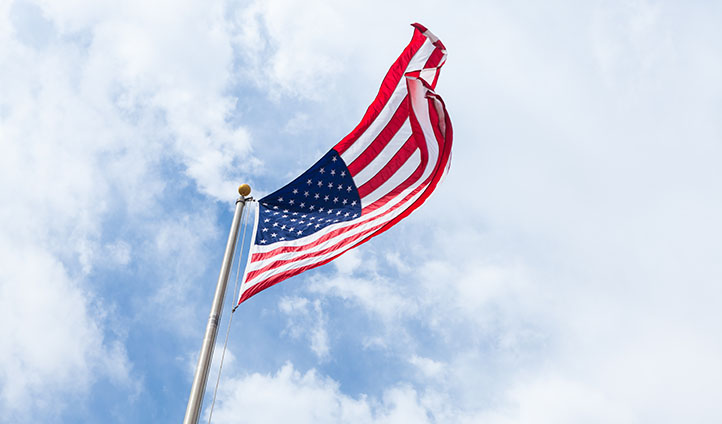Menu
Hot-Topics
February 19, 2026 | SCOTUS Reaffirms Fourth Amendment Standard for Police Responding to Household Emergencies
Month: February 2018

Brown v Legal Foundation of Washington (2003)
In Brown v Legal Foundation of Washington, 538 U.S. 216 (2003), the U.S. Supreme Court held that the use of interest on lawyers' trust accounts to pay for legal services provided to the needy did not constitute a state taking in violation of the Just...

No Taking Clause Exception to Full Faith and Credit Statute in San Remo Hotel v City and County of San Francisco
In San Remo Hotel v City and County of San Francisco, 545 U.S. 323 (2005), the U.S. Supreme Court declined to create an exception to the full faith and credit statute in order to provide a federal forum for litigants seeking to advance federal taking...

Artis v District of Columbia: Statute of Limitations for State Claims Stops While in Federal Court
In Artis v District of Columbia, 583 U. S. ____ (2018), the U.S. Supreme Court held that bringing state claims in federal court stops the clock on the statute of limitations for those claims. The decision represented the first time that the justices ...

Clean Water Rule Challenges Belong in District Courts in National Association of Manufacturers v Department of Defense
In National Association of Manufacturers v Department of Defense, the U.S. Supreme Court clarified that legal challenges involving the Waters of the United States Rule (often referred to as the “Clean Water Rule”) must be filed in the federal dis...

Qualified Immunity to Police Officers in District of Columbia v Wesby
The U.S. Supreme Court unanimously held in District of Columbia v Wesby, 583 U. S. ____ (2018), that police officers had probable cause to arrest several partygoers at a raucous, late-night Washington, D.C. party. The Court further held that the offi...
Previous Articles
SCOTUS Decision in Bowe v. United States Is First of the 2026 Term
by DONALD SCARINCI on February 5, 2026
In Bowe v. United States, 607 U.S. ___ (2026), the U.S. Supreme Court held that Title 28 U.S.C. § ...
SCOTUS Rules State Can’t Immunize Parties from Federal Civil Liability
by DONALD SCARINCI on January 29, 2026
In John Doe v. Dynamic Physical Therapy, LLC, 607 U.S. ____ (2025) the U.S. Supreme Court held that...
Supreme Court to Address Racial Discrimination in Jury Selection
by DONALD SCARINCI onWhile the U.S. Supreme Court has concluded oral arguments for the year, it continues to add cases t...
The Amendments
-
Amendment1
- Establishment ClauseFree Exercise Clause
- Freedom of Speech
- Freedoms of Press
- Freedom of Assembly, and Petitition
-
Amendment2
- The Right to Bear Arms
-
Amendment4
- Unreasonable Searches and Seizures
-
Amendment5
- Due Process
- Eminent Domain
- Rights of Criminal Defendants
Preamble to the Bill of Rights
Congress of the United States begun and held at the City of New-York, on Wednesday the fourth of March, one thousand seven hundred and eighty nine.
THE Conventions of a number of the States, having at the time of their adopting the Constitution, expressed a desire, in order to prevent misconstruction or abuse of its powers, that further declaratory and restrictive clauses should be added: And as extending the ground of public confidence in the Government, will best ensure the beneficent ends of its institution.
Awards





